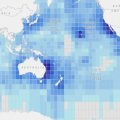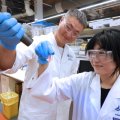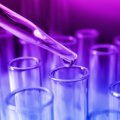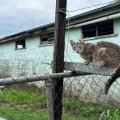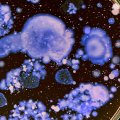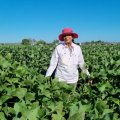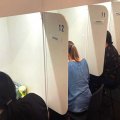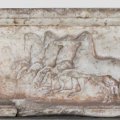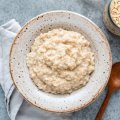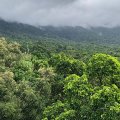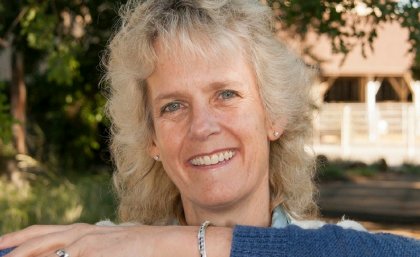
The wilder side of agricultural science will be in the spotlight in a series of University of Queensland public lectures featuring a renowned American animal scientist and genomics expert.
The Douglas Ormonde Butler Memorial Lecture series will feature Professor Alison Van Eenennaam, head of the University of California at Davis’s Animal Genomics and Biotechnology Laboratory, discussing the role of genetic manipulation and modification in agricultural science.
Professor Van Eenennaam said the first seminar, Sex in the petri (dish)? on Wednesday 8 August, would focus on genetic techniques beyond sex in livestock.
“Animal breeders are effectively glorified matchmakers, selecting parents to generate the best possible offspring for a specific breeding goal,” she said.
“We have new opportunities to combine animal performance and genomic information, deep learning, advanced reproductive technologies, and precision breeding methods to improve conventional breeding and selection programs.
“We could deliver elite genetics in locally-adapted breeds of livestock to benefit livestock producers in parts of the world where access to high-quality protein sources is difficult.”
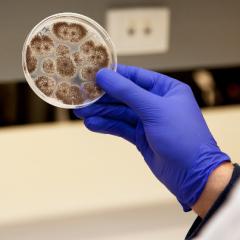 Professor Van Eenennaam will look at the heated debates about genetic modification and selection in her second lecture, “Fake News”: How misinformation about agriculture threatens sustainability and innovation, on Thursday 9 August.
Professor Van Eenennaam will look at the heated debates about genetic modification and selection in her second lecture, “Fake News”: How misinformation about agriculture threatens sustainability and innovation, on Thursday 9 August.
“The phenomenon of fake news is not new to agricultural scientists,” she said.
“Misinformation and fallacies abound, and simplistic narratives regarding the ‘best’ way to produce food dominate the internet and media.
“The fractious GMO debate plainly demonstrates the dramatic disconnect that can exist between popular opinion and the peer-reviewed evidence.
“While some may romanticise ‘natural’ heirloom breeds and varieties, it is clear our pet dogs are not aggressive wolves and, likewise, food species have been dramatically modified from their ancestral forms.”
The lecture series was established in 1977 with a bequest from the estate of Douglas Ormonde Butler to teach genetics, particularly with reference to agriculture and stock.
Mr Ormonde Butler was a retired grazier from Kilcoy, who served with the Royal Australian Air Force in the Second World War.
The lecture series will be supported by a screening of the film Food Evolution 9 August. Register to attend on UQ’s lecture series webpage. No RSVP is required for Sex in the petri (dish)?
Image above left: Sex in the petri (dish)?
Media: Dominic Jarvis, dominic.jarvis@uq.edu.au, +61 413 334 924.
.jpg)
